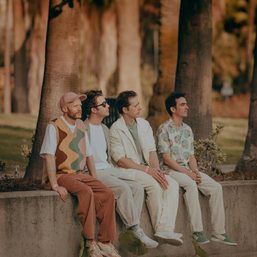SUMMARY
This is AI generated summarization, which may have errors. For context, always refer to the full article.

MANILA, Philippines – Taylor Swift’s “The Eras” concert craze led to hundreds of thousands of people flying to Singapore. But rather than being an exception, the pop superstar might have just kickstarted concert tourism as a hot travel trend.
“The trend about bundling hotels rooms with concert tickets or with activities is also something that’s really amazing,” said Trip.com vice president of international markets Boon Sian Chai.
Data from travel app Trip.com showed that the total volume of Singapore-related bookings surged by 275% in the week of Taylor Swift’s Singapore concert (March 1 to 9) compared to the same period two weeks later (March 15 to 23).
In particular, inbound flight bookings to Singapore rose by 186%, and bookings for accommodations shot up by 462%. Trip.com also reported that attractions and tour bookings jumped by 2,373%. The figures suggest concert tourism does more than just promote a particular show; it also stimulates other tourism-related activities across the board.
The travel platform also noticed that in terms of demographics, those making Singapore bookings during the week of Taylor’s concert were younger on average. Almost half (48%) of users who used Trip.com for Singapore bookings during that time were in the 21 to 30 years of age range. In the two weeks after, users aged 21 to 30 years old only made up about a quarter (24%) of bookings.
Klook, another travel app, also recently said that Filipinos were the top buyers of a hotel and ticket bundle that they offered for Taylor Swift’s Singapore concert, accounting for up to 15% of all ticket bundles sold globally. (READ: Filipinos were ready for it: PH top buyer of Taylor Swift tour tickets in Klook)
Even digital bank GoTyme noticed an unusual uptick in their transactions – a 350% spike in their overseas card transactions in March, to be precise. And it was all because of Taylor Swift.
“We were like, ‘What is going on? It’s so much!’ Singapore went from 500 swipes a day to 5,000 swipes a day during the Taylor Swift week,” GoTyme president and chief executive officer Nate Clarke told Rappler.
IU tickets sell ‘like hotcakes’
And though some might dub this the “Taylor Swift effect,” this isn’t unique to just the American pop star.
Something similar happened to IU, one of South Korea’s most popular singers. Trip.com, which served as the priority presale platform for the Hong Kong stop of the “H.E.R. World Tour,” noted that the “thousands” of tickets for IU’s concert sold out in 30 seconds.
“The moment we start selling, it just sells like hotcakes,” Chai said.
The travel app plans to ride on this worldwide trend, as the Trip.com executive said he expects a similar level of demand for the Singapore IU concert tickets that it will sell. Concert tourism, he said, will be something that their company expands internationally since it was”quite common across multiple races,” although Trip.com has yet to offer concert and hotel bundles in the Philippines.
“Music festivals and concerts is going to be something that is going to be up and coming, and it’s very attractive for youngsters,” Chai said. – Rappler.com
Add a comment
How does this make you feel?













There are no comments yet. Add your comment to start the conversation.